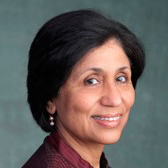| Title | Supporting Workplace Mental Health |
| Date | 11/23/2022 |
| Time | 10:30 am – 12:00 pm |
| Location | Zoom |
| Topics | This session will provide an overview of a new required training for all managers and supervisors at UBC. The Wellbeing Strategic Framework was called for in UBC’s Strategic Plan, and outlines our collective approach to embedding wellbeing into organizational plans, policies, practices, work plans and decision-making. In 2021, an initiative was identified as part of the UBC Wellbeing Mental Health & Resilience (MHR) Committee working group to develop and implement required workplace Mental Health Literacy (MHL) training to all supervisors (faculty and staff with managerial or supervisory duties) at UBC. This session will provide HR professionals within Faculty of Medicine an overview of how this training came about, the project implementation process that is currently underway and a snapshot of the content covered within the training. There will also be an opportunity for questions and discussion particularly related to supporting completion when the course launches in early 2023. Following this presentation, Lauren Lee, Workplace Wellbeing Associate, EFAP will provide a 20 minute presentation on key resources and services available to support workplace mental health at UBC Please RSVP via this link, by Monday, November 14, 2022 and indicate on the form if you have any specific questions or cases you would like to go through. If there are specific cases or questions you would like to discuss please prepare information to bring to the session, for sharing and discussion. |
| Presenter | Crystal Hutchinson, Senior Lead Workplace Wellbeing Strategies and Lauren Lee, Workplace Wellbeing Associate, EFAP from the Health, Wellbeing and Benefits team within Central HR |
| Target Audience | HR Professionals |
Supporting Workplace Mental Health
Zoom & Microsoft Teams video recordings data retention
A one-year data retention schedule for Zoom and MS Teams video recordings is coming October 2023.
This data retention schedule, issued by UBC’s Records Management Office, will affect all faculty, staff and student employees at both UBC Vancouver and UBC Okanagan campuses.
- At this time, only video recordings created in Microsoft Teams and Zoom are affected.
- Faculty and staff only need to take action if they want to retain recorded video for longer than a year.
- To retain content, you can move the video to Kaltura, UBC’s enterprise video storage solution, or to OneDrive for personal storage.
In October 2023, any video recordings that are more than one year old will be automatically destroyed.
Learn more
- Find more information and video storage solutions in the Frequently Asked Questions
- For technical support, contact the IT Service Centre
For all questions, concerns or other feedback regarding this policy, please contact UBC Records Management.
Register now: Join an online focus group on healthy research environments in the Faculty of Medicine
Healthy Environments in Academic Research Teams (HEART) is a new program developed by the Graduate and Postdoctoral Education Office that aims to equip Faculty of Medicine research teams to thrive.
HEART want to hear your thoughts on what makes a healthy research culture in the Faculty of Medicine, and shape a program that can create genuine positive change.
Faculty, research staff, postdoctoral fellows and grad students are invited to a one-hour online focus group, and will receive a $20 voucher for their time.
Register for a focus group by November 25, 2022.
Five easy steps to stay safe online
October is Cybersecurity Awareness Month, a global effort to help everyone stay safe and protected when using technology, whenever and however you connect.
The Faculty of Medicine Digital Solutions team shares five easy steps to keep you, your family and your friends safe from cybercriminals.
1. Watch out for phishing
Play hard to get with strangers. If you’re unsure who an email, text or call is from — even if the details appear accurate — do not respond, and don’t click on any links or attachments.
Phishing remains one of the most popular tactics among cybercriminals — but we can all play a part to prevent others from becoming victims. To report phishing attempts sent to your UBC email address, forward the suspect email as an attachment to security@ubc.ca. To report ones sent to your personal email address, contact your service provider.
2. Enable multi-factor authentication
Ensure that the only person who has access to your valuable financial or personal information is you, by enabling multi-factor authentication (MFA).
Where available, adding MFA to an online account will prompt for a second set of verification, such as a code sent by email or text, a biometric identifier like a fingerprint, or a prompt from a mobile app like Duo.
You may be familiar with MFA if you’re using an Enhanced CWL to login to UBC systems. You can also add this layer of security outside UBC by enabling MFA on personal devices and accounts.
3. Activate automatic updates
If you connect it, protect it. Outsmart cybercriminals by regularly updating your software. Instead of trying to remember to check for updates or closing out of update notifications, enable automatic update installations whenever possible.
4. Update your passwords
Having long, complex and unique passwords is a must.
Password cracking is one of the go-to tactics that cybercriminals use to access sensitive information. If you are a ‘password repeater’, once a cybercriminal has hacked one of your accounts, they can easily do the same across all of your accounts.
5. Use a password manager
This tip makes stronger passwords easy — try a password manager to generate and store strong, unique passwords for your ever-growing list of online accounts.
Some popular password managers include KeePass, 1Password, Bitwarden, and LastPass, among others.
Learn more
Digital Solutions provides centrally-managed technology solutions to the Faculty of Medicine, including tools and guidance to manage and reduce your cybersecurity risk.
Learn more and stay up to date on cybersecurity at UBC and beyond on the UBC Privacy Matters website.
Contact
For digital security-related support, please email security@ubc.ca.
Join us for the Indigenous Speaker Series: Diagnosing Truth, Healing and Conciliation Inside BC Health Care Systems
An invitation from the Office of Respectful Environments, Equity, Diversity and Inclusion.

Join the Office of Respectful Environments, Equity, Diversity and Inclusion (REDI) on Monday, October 17 for Diagnosing Truth, Healing and Conciliation Inside BC Health Care Systems with Dr. Danièle Behn Smith, Deputy Provincial Health Officer, Indigenous Health.
Dr. Behn Smith works alongside Dr. Bonnie Henry, Provincial Health Officer, and provides independent advice and support to the Ministry of Health on Indigenous health issues. In support of the ministry’s strategic agenda she works in meaningful partnership with Indigenous — First Nations, Inuit, Métis — collectives, communities and organizations to advance wellness and disrupt colonial practices and policies.
In this second session of the Indigenous Speaker Series, we will hear Dr. Behn Smith’s unique perspective on how health and academic systems can best approach the work in relation to the processes of Truth and Reconciliation.
Topic: Diagnosing Truth, Healing and Conciliation Inside BC Health Care Systems
When: Monday, October 17, 2022 from 12–1:30 pm (PST)
The REDI Indigenous Initiatives Speakers Series is an original and important platform to begin, continue and advance the conversation about telling the truth and reconciling for the future.
This message was sent to all faculty, staff and learners in the Faculty of Medicine.
Dr. Kiran Veerapen extended as Assistant Dean, Faculty Development
A message from Roger Wong, Vice Dean, Education.

I am pleased to announce the extension of Dr. Kiran Veerapen as Assistant Dean, Faculty Development, in the UBC Faculty of Medicine, effective to December 31, 2022. Dr. Veerapen is a clinical associate professor in the Department of Medicine.
Dr. Veerapen will continue to provide strategic leadership on faculty development. She works closely with regional associate deans, associate deans, assistant deans and other faculty leaders, ensuring that faculty development activities align with strategic priorities, and that Faculty and UBC plans are compliant with accreditation standards.
Please join me in thanking Dr. Veerapen for her continued leadership.
Celebrate Academic Integrity Week, Oct. 17–21
Join the Academic Integrity Hub for Academic Integrity Week October 17–21, 2022, promoting academic integrity at UBC and beyond.
Explore a range of events and resources, including Take Five for Integrity — an in-class awareness campaign supported with materials for instructors and in-class presentations from staff and students.
Dr. Calvin Roskelley appointed interim Associate Dean, Graduate and Postdoctoral Education
A message from Roger Wong, Vice Dean, Education and Robert McMaster, Vice Dean, Research, Faculty of Medicine.

We are pleased to announce the appointment of Dr. Calvin Roskelley as the interim Associate Dean, Graduate and Postdoctoral Education, effective to December 31, 2022.
Dr. Roskelley is a professor in the Department of Cellular & Physiological Sciences. His research focuses on the role of the tissue microenvironment in tumor progression. Dr. Roskelley contributes to the teaching mission in the undergraduate medical, biomedical engineering and science programs, as well as serving as Director of the cell and developmental biology graduate program. Dr. Roskelley also serves on the graduate supervisory committees of students in multiple graduate programs in the Faculty.
Dr. Roskelley’s appointment follows the leadership of Dr. Michael Hunt. We would like to thank Dr. Hunt for his outstanding leadership in the Faculty.
Please join us in thanking Dr. Roskelley for his interim leadership.
VCHRI launch Strategic Plan 2022-2027
The Vancouver Coastal Health Research Institute (VCHRI) has launched the VCHRI Strategic Plan 2022-2027: Integrating Research Innovation and Health Care.
Read the strategic plan on their website to learn more about their plan to achieve meaningful and sustainable outcomes for patients, families and the research community.